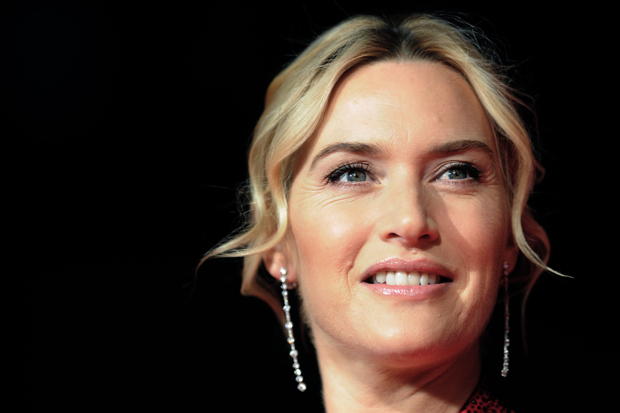When one is in one’s seventies, as I am, one begins to fear the horror of dementia and to carry out anxious checks on one’s memory to see if the brain is still working. The results in my case are not very encouraging. For example, it took me several days to remember that the film star who canoodled with Leonardo DiCaprio in the stern of the Titanic was called Kate Winslet, although I am an admirer of hers and even once met her. Nor can I remember the words of the songs and poems that I used to know by heart. Am I on my way to becoming a helpless vegetable at the mercy of resentful carers?
This is the point at which one turns to the Daily Mail for comfort. That newspaper contains so much contradictory health advice that one is as likely to find reassurance in it as to find discouragement. And so it turned out last week when it took a break from scare stories to publish a cheering little news item saying that ‘older people’s brains do not lose capacity — they simply take longer to process the huge amount of information gathered over a lifetime’.
According to the Mail, scientists at the German university of Tübingen found that brains work just like computers; that when they get clogged up with stuff, they need, like them, more time to find the information they are looking for. A leader of the research team said: ‘The brain works slower in old age, because we have stored more information over time. The brains of older people do not get weak. On the contrary, they know more.’ That is comforting news. The team found that when a computer was fed with a small amount of intelligence, it performed with as much agility as a young person; but that when it was filled up with data, it became as slow-witted as an oldie.
On the other hand, the team failed to point out an essential difference between computers and human brains. Computers don’t have to get clogged up: they can be cleared at any time of all disposable material. Brains, however, don’t possess a ‘delete’ button. They just accumulate more and more information as the years go on, none of it ever to be expunged. And I find that the memories taking precedence in my brain are the ones that I am most eager to forget. Moments of pain, embarrassment, humiliation and failure predominate over the more pleasant or creditable episodes in my life. I cannot forget the terrifying experience of walking as a child into a swarm of bees that got caught in my hair and inflicted multiple stings on my scalp, nor of developing a hideous rash from overindulging a passion for boiled eggs, nor of being bedridden with measles and chicken pox. Nor can I forget as a nervous ten-year-old being thrown by a horse that my elder sisters had sat me on and then whacked from behind.
I am haunted by the memory of the oral exam that, after three years of indolence and debauchery at university, assured my failure in the Russian tripos when I couldn’t understand a word that my examiners were saying and answered their questions only with ‘da’ or ‘nyet’; and I won’t elaborate on the many embarrassments and humiliations I suffered in my youthful encounters with the opposite sex. These are among the disagreeable things that I would like to excise from my brain but cannot. So the brain has to wade through all this grim material before it can finally get to the name of Kate Winslet. Better a computer any day.
Meanwhile, the Daily Mail has been less than supportive of my efforts to stop drinking. I have made no New Year resolution, but I now haven’t drunk anything for more than three weeks, hoping not only that abstinence will stop me falling asleep so often during the day but also that it may help to prevent dementia. But a friend has drawn my attention to a recent two-page article in the Mail extolling the huge benefits that derive from drinking red wine, particularly in protecting one against dementia. I expect that the Mail has published many articles saying how bad wine is for you, but this one claims that it builds resistance to a vast range of ailments including heart disease, diabetes, arthritis, osteoporosis, breast cancer, stomach cancer, bowel cancer, prostate cancer, macular degeneration, and even the common cold. As for dementia, it says that this is far more common among teetotallers than wine-drinkers. How meaningless it all is!
Got something to add? Join the discussion and comment below.
Get 10 issues for just $10
Subscribe to The Spectator Australia today for the next 10 magazine issues, plus full online access, for just $10.
You might disagree with half of it, but you’ll enjoy reading all of it. Try your first month for free, then just $2 a week for the remainder of your first year.













Comments
Don't miss out
Join the conversation with other Spectator Australia readers. Subscribe to leave a comment.
SUBSCRIBEAlready a subscriber? Log in